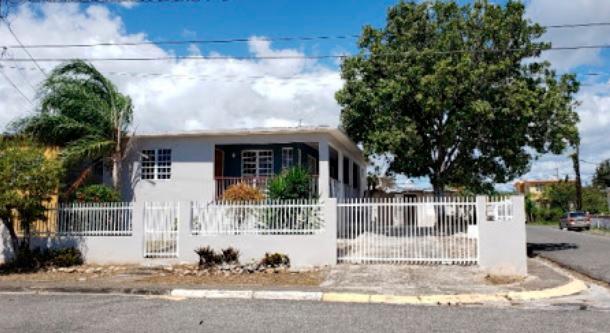
The crisis associated with the covid-19 pandemic has not been reflected in Puerto Rico’s real estate, where the arrival of Americans in search of tax benefits has led to a historic takeoff of the sector, especially luxury. , to which is added a significant boom in the sale of pleasure boats.
Prominent representatives on the island of luxury real estate and high-end boats confirmed this Wednesday to Efe that unlike other sectors to which the pandemic has taken its toll have experienced during this year growths never before known.
The owner of Luxury real estate collection, Francisco Díaz Fournier, told Efe that, without a doubt, this year of pandemic has been very positive for his company, probably the most prominent in the real estate luxury sector.
‘There is no inventory to meet demand, which causes prices to skyrocket,’ says Diaz Fournier, who recalls that right now in Puerto Rico more than $ 1,000 per square foot is being paid, similar figures in Miami, Nova. York or San Francisco.
Díaz Fournier emphasizes that the arrival of American citizens in Puerto Rico in search of tax incentives is the cause that has transformed the sector.
A good example of the amazing boom in the luxury real estate industry during the pandemic is the news published a month ago that reported the sale of the most expensive house in history in Puerto Rico for $ 30 million.
The property is located in the town of Dorado, about 20 minutes from the capital, San Juan, near the luxurious Ritz-Carlton Reserve Hotel.
Record but no exception
Although it was a record, it is no exception among the houses with millionaire prices, as according to the island’s media the second most expensive house in Dorado sold for $ 25 million, followed by another with a price that it was around 19 million.
Diaz Fournier indicated that when the pandemic broke out a year ago, people in the United States valued large assets and moved safe places and safe places and, above all, with favorable tax conditions for their money.
They stop paying millions in taxes
Local media remember that Hundreds of Americans who have moved to Puerto Rico have stopped paying millions of dollars to the federal treasury.
Law 22 encourages people who have not been residents of Puerto Rico for the past 15 years prior to the passage of the rule and who maintain investments in or outside the United States to establish residency on the island.
This rule, to encourage the transfer of these investors, exempts them from the payment of contribution for passive income, which includes interest, dividends and capital gains on the sale of shares.
The businessman pointed out that a sale in San Juan has recently closed that has exceeded $ 7 million and others in the county district of the capital have been above $ 3 million.
Process in other parts of the Caribbean
Puerto Rico is thus approaching what is happening in other parts of the Caribbean, where for example on the island of San Bartolomé a house was recently sold for 90 million dollars.
But it’s not just houses that are on the rise, as the luxury craft sector is another of those experiencing a hitherto unknown boom.
CFR Yacht Sales director Carlos Rodríguez told Efe that during this pandemic year ‘more boats have been sold than ever’, something that a priori few could think of at a time when the economy in general is going through globally great difficulties.
He explained that CFR Yacht Sales, which sells boats from the Viking Yachts and luxury English Princess brands, is living an era of sales that was not remembered.
The manager explained that there are two reasons for this and that his own clients have commented on it.
The first is that due to the impossibility of making trips people choose to buy a boat as a recreational alternative.
The second is that elderly people have thrown themselves into shopping in the face of the possibility that this is their last chance to enjoy a boat with the constant threat of a potential death from the virus.
‘People who buy these boats usually do so with bank loans and these are business people and professionals like doctors,’ he stressed.
These two economic sectors contrast with others severely affected on the island such as tourism and restaurants and leisure, in which many jobs have been lost. EFE